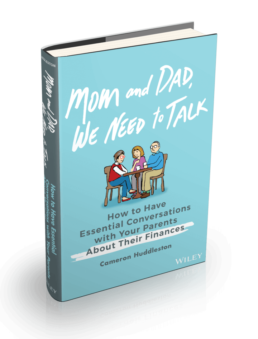My sister recently texted that she might have been exposed to the coronavirus. I quickly texted back: “OK, let’s hope you don’t get it. Do you have a living will?”
You might be thinking, “What kind of sister are you? Who responds to a message that her sister might have been exposed to a deadly virus by asking about a living will?” The type of person who knows the importance of planning for worst-case scenarios, that’s who.
All adults should have a living will. However, with a pandemic that continues to spread, this legal document is essential now more than ever.
What is a living will?
A living will – also called an advance health care directive — is a legal form that allows you to spell out what sort of medical care you would or would not want at the end of life. You can identify whether you would want resuscitation by CPR, tube feeding, ventilation or other treatments to prolong your life. You also can specify whether you would want interventions to manage pain and keep you comfortable at the end of life.
An advance directive also allows you to name someone to make health care decisions for you if you cannot. The document is called a health care power of attorney and the person appointed to make health care decisions is called a health care agent, proxy or surrogate.
To be clear, a health care proxy can only make treatment decisions for you if you are incompetent. However, you must be competent to sign an advance directive. That’s why it’s important to make sure you have this document before a medical emergency or condition leaves you unable to make health care decisions on you own. It allows you to spell out your wishes so there is no confusion about what you want.
What happens if you don’t have a living will
When I asked my sister if she had a living will, she said she didn’t. Then she said, “If you tell the doctor upon admission what you want, they follow it.” That’s true, but there’s a problem with that approach.
Say you had a stroke and were unconscious at the time you were admitted to the hospital. You wouldn’t be able to tell the doctor whether you wanted to be kept on life support.
Your family member who might be present will be asked if you have a living will or advance directive. If you don’t have anything in writing, the doctor and hospital will likely be reluctant to simply take your family member’s “word” for it that, say, you don’t want to be kept on life support – especially if other family members insist that you should be kept alive by all means necessary.
If you don’t have a living will that spells out what you want, your family members could end up battling it out in court over whether to keep you on life support. Yes, that’s an extreme outcome. But it’s easily avoided if you have a legal document that states your wishes.
How to get a living will
Each state has its own statute allowing individuals to make their end-of-life wishes known. Ideally, you should meet with an attorney to have a living will drafted that conforms to your state’s law – and to have other essential estate planning documents such as a will and power of attorney drafted.
Some attorneys might be willing to use video conferencing to meet with you and discuss your estate planning needs. Expect to pay at least several hundred dollars for a will, living will and power of attorney documents. Of course, the cost will be much lower if you only have a living will drafted, but all three of these documents are essential.
If you can’t afford an attorney or can’t set up a virtual meeting, there are fill-in-the blank advance directive documents available online. For example, you can download a free advance directive for your state from the National Hospice and Palliative Care Organization. For the form to be valid, though, it typically needs to be signed in front of witnesses or adhere to other signing formalities.
My sister downloaded a fill-in-the-blank form to make her wishes known and to name me her health care proxy. She got a friend who is a notary public to drive by and notarize her document – while keeping her distance. My sister then sent me a copy of the document.
Once you have an advance directive, give your proxy one of the originals (attorneys typically provide you with more than one document) or a copy. And give your doctors copies to keep with your medical records. Also, discuss with other family members what sort of end-of-life care you want and who your health care proxy is so there aren’t any surprises. While you’re having these discussions, ask your family members — especially aging parents — if they have their own living wills so you know what their wishes are.
Keep in mind that if you change your mind about what sort of end-of-life medical treatment you want or about whom you’ve names as your proxy, you can draft a new advance directive to change your wishes.
Don't Miss Out! ORDER NOW!
"An excellent step-by-step guide to navigate what can be time-consuming, uncomfortable conversations."
- Michelle Singletary, The Washington Post
Related Posts

Cameron Huddleston
I am the author of Mom and Dad, We Need to Talk: How to Have Essential Conversations With Your Parents About Their Finances. I also am an award-winning journalist with 20 years of experience writing about personal finance. My work has appeared in Kiplinger’s Personal Finance, Forbes.com, Yahoo!, MSN, and other online and print publications.





[…] said Bowling Green, Kentucky-based personal finance writer Cameron Huddleston, author of “Mom and Dad, We Need To Talk.” Setting up a comprehensive estate plan with an attorney could cost over $1,000 or several hundred […]
[…] said Bowling Green, Kentucky-based personal finance writer Cameron Huddleston, author of “Mom and Dad, We Need To Talk.” Setting up a comprehensive estate plan with an attorney could cost over $1,000 or several hundred […]
[…] said Bowling Green, Kentucky-based personal finance writer Cameron Huddleston, author of “Mom and Dad, We Need To Talk.” Setting up a comprehensive estate plan with an attorney could cost over $1,000 or several hundred […]
[…] said Bowling Green, Kentucky-based personal finance writer Cameron Huddleston, author of “Mom and Dad, We Need To Talk.” Setting up a comprehensive estate plan with an attorney could cost over $1,000 or several hundred […]
[…] said Bowling Green, Kentucky-based personal finance writer Cameron Huddleston, author of “Mom and Dad, We Need To Talk.” Setting up a comprehensive estate plan with an attorney could cost over $1,000 or several hundred […]
[…] said Bowling Green, Kentucky-based personal finance writer Cameron Huddleston, author of “Mom and Dad, We Need To Talk.” Setting up a comprehensive estate plan with an attorney could cost over $1,000 or several hundred […]
[…] said Bowling Green, Kentucky-based personal finance writer Cameron Huddleston, author of “Mom and Dad, We Need To Talk.” Setting up a comprehensive estate plan with an attorney could cost over $1,000 or several hundred […]
[…] said Bowling Green, Kentucky-based personal finance writer Cameron Huddleston, author of “Mom and Dad, We Need To Talk.” Setting up a comprehensive estate plan with an attorney could cost over $1,000 or several hundred […]
[…] said Bowling Green, Kentucky-based personal finance writer Cameron Huddleston, author of “Mom and Dad, We Need To Talk.” Setting up a comprehensive estate plan with an attorney could cost over $1,000 or several hundred […]
[…] said Bowling Green, Kentucky-based personal finance writer Cameron Huddleston, author of “Mom and Dad, We Need To Talk.” Setting up a comprehensive estate plan with an attorney could cost over $1,000 or several hundred […]
[…] said Bowling Green, Kentucky-based personal finance writer Cameron Huddleston, author of “Mom and Dad, We Need To Talk.” Setting up a comprehensive estate plan with an attorney could cost over $1,000 or several hundred […]
[…] said Bowling Green, Kentucky-based personal finance writer Cameron Huddleston, author of “Mom and Dad, We Need To Talk.” Setting up a comprehensive estate plan with an attorney could cost over $1,000 or several hundred […]
[…] mentioned Bowling Green, Kentucky-based private finance author Cameron Huddleston, writer of “Mom and Dad, We Need To Talk.” Setting up a complete property plan with an lawyer may value over $1,000 or a number of hundred […]
[…] said Bowling Green, Kentucky-based personal finance writer Cameron Huddleston, author of “Mom and Dad, We Need To Talk.” Setting up a comprehensive estate plan with an attorney could cost over $1,000 or several hundred […]
[…] said Bowling Green, Kentucky-based personal finance writer Cameron Huddleston, author of “Mom and Dad, We Need To Talk.” Setting up a comprehensive estate plan with an attorney could cost over $1,000 or several hundred […]
[…] said Bowling Green, Kentucky-based personal finance writer Cameron Huddleston, author of “Mom and Dad, We Need To Talk.” Setting up a comprehensive estate plan with an attorney could cost over $1,000 or several hundred […]
[…] said Bowling Green, Kentucky-based personal finance writer Cameron Huddleston, author of ”Mom and Dad, We Need To Talk.” Setting up a comprehensive estate plan with an attorney could cost over $1,000 or several hundred […]
[…] said Bowling Green, Kentucky-based personal finance writer Cameron Huddleston, author of “Mom and Dad, We Need To Talk.” Setting up a comprehensive estate plan with an attorney could cost over $1,000 or several hundred […]
[…] said Bowling Green, Kentucky-based personal finance writer Cameron Huddleston, author of “Mom and Dad, We Need To Talk.” Setting up a comprehensive estate plan with an attorney could cost over $1,000 or several hundred […]
[…] stated Bowling Inexperienced, Kentucky-based private finance author Cameron Huddleston, creator of “Mom and Dad, We Need To Talk.” Establishing a complete property plan with an legal professional might value over $1,000 or a number […]
[…] Why You Need a Living Will Now More Than Ever […]